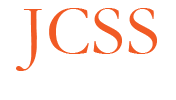
BPJS: Definition, Types, and Available Services
BPJS is a legal entity that has been operating since 2014 with the authority to provide social security in the form of health and employment benefits. These two aspects are very important for the general public and workers to improve their welfare.
Usually, the benefits obtained by the public from BPJS are health insurance and pension severance for private employees.
This article will discuss the definition of BPJS, how to register for BPJS online, and how to check it.
Get a Free BPJS Consultation
The consultations are provided by BPJS experts who can advise on topics such as:
- Mandatory BPJS requirements for individuals and companies
- Differences between BPJS Health and BPJS Employment coverage
- Selecting the appropriate BPJS class and premium levels
- Registering new BPJS participants
- Managing ongoing BPJS payments and compliance
To take advantage of these free BPJS consultations, you can contact the service providers directly using the contact information provided in the search results. This will allow you to get personalized guidance on navigating the BPJS system in Indonesia click here.
What is BPJS?
BPJS stands for Badan Penyelenggara Jaminan Sosial, which is a special agency tasked with organizing health and employment insurance for the public, civil servants, and private employees. This program started in 2014 based on Law Number 24 of 2011.
One of the programs organized by BPJS is the National Health Insurance (JKN). JKN is organized through an insurance system, where the public is required to pay a small premium as savings for future medical expenses.
Basically, all Indonesian citizens are required to participate in the BPJS program, including foreigners and workers who have been residing in Indonesia for at least 6 months and paying premiums.
Types of BPJS
BPJS organizes two types of health insurance. Here is an explanation of the two BPJS programs:
BPJS Health
BPJS Health is insurance in the field of health, or commonly known as the National Health Insurance (JKN). The legal basis for its implementation is Law Number 40 of 2004, and membership is marked by the Indonesia Health Card (KIS), including those who receive premium assistance from the government (PBI).
JKN provides comprehensive health services through tiered referrals depending on the patient’s medical indications. The benefits provided by BPJS membership are as follows:
- Receiving health counseling regarding healthy living behaviors and environmental management.
- The right of every BPJS participant’s child to receive basic immunizations including BCG, DPT-HB, measles, and polio.
- Obtaining family planning services such as contraception, pregnancy counseling, as well as tubectomy and vasectomy.
- Examinations for kidney failure, cancer, and heart surgery.
- Health screenings according to disease risk or further impacts.
Generally, BPJS participants receive primary health care services, both in the form of intensive or non-intensive inpatient care, as well as further referrals in the form of outpatient or inpatient care, depending on the class chosen by the public.
BPJS Employment
BPJS Employment organizes the Old Age Security (JHT), which is paid by employers and employees. The purpose of JHT is to provide rewards when employees retire, suffer permanent disability, or pass away. Membership is marked by the Jamsostek Participant Card (KPJ).
KPJ BPJS is a participant’s identification card. For company employees, their membership is usually indicated by an 11-digit number on it. Meanwhile, KPJ for those working in the non-formal sector without company wages (traders, farmers, fishermen, etc.) is usually not accompanied by a number. However, both are still registered in the BPJS system.
BPJS Premium Amount
The amount of BPJS premiums is based on the participant’s economic capacity. Here are the details:
BPJS Health Premium
The amount of BPJS Health premiums is determined based on the class, ranging from the most expensive class I to the more affordable class III. These rates change every year, but as of January 2021, the nominal amounts are as follows:
- Class III: Rp35,000 per month. This rate has been reduced by a government subsidy of Rp7,000 from the original total of Rp42,000.
- Class II: Rp100,000 per month.
- Class I: Rp150,000 per month.
The above nominal rates apply to independent participants and non-workers. For office employees, the rates are as follows:
- BPJS premium payment is 1% of the total salary.
- Companies are required to pay 4% of the total salary of their employees.
- The maximum salary limit for BPJS premiums covered by the company is Rp12 million.
BPJS payment schedule is on the 10th of every month. If there is an overpayment, there will be a written notification to the company no later than 14 days after receipt, then calculated with the nominal amount for the following month.
Read More: Opening New Opportunities With Business Licensing In Indonesia
Read More: Investor KITAS Indonesia: The Complete Guide To Getting One
BPJS Employment Premium
The nominal amount of BPJS Employment premiums is as follows:
- For wage recipients, the nominal amount to be paid is 2%, while the company must pay 3.7%.
- For non-wage recipients, the BPJS premium is 2% of the monthly salary.
- For the Old Age Security BPJS Employment premium specifically for migrant workers, the amount to be paid is Rp50,000 to Rp600,000 per month.
How to Register for BPJS Online
BPJS registration is mandatory. Here are the steps:
- Prepare the following documents:
- An active email address.
- An active mobile phone number.
- Family Card (KK) number.
- Resident Identification Number (NIK).
- Steps to register for BPJS:
- Download the JKN Mobile application on your phone, then install it.
- Open the application and click “Register.”
- Select the “New Participant Registration” menu.
- Read the registration terms carefully, then click “Agree.”
- Enter NIK and captcha code.
- Fill in all the required data, then click “Next.”
- Choose the desired health facilities.
- Enter your email address, then click “Save.”
- Wait for verification via email.
- Open the virtual account sent by BPJS Health, then make the premium payment.
- If the BPJS premium payment is successful, you are registered as a participant.
- Your BPJS Health Card is available in the application in a virtual form.
How to Check BPJS Health
Here are some ways to check BPJS bills and activity online:
Via WhatsApp
Contact the number 0811-8750-400, and you will be connected to a guide officer.
Via SMS
Type NIK (space) (Enter your NIK) or type NOKA (space) (enter your BPJS Health card number), then send to 08777 5500 400.
Application
Install the BPJS Health check application, then register using the BPJS card number and email. Log in using the data and click the “Bills” menu, then “Premium.” Information about bills and participation will be displayed.
Website
Visit https://daftar.bpjs-kesehatan.go.id/bpjs-checking, then fill in the required data.
BPJS Ketenagakerjaan vs. Private Insurance
BPJS Ketenagakerjaan is the mandatory social security program in Indonesia that provides coverage for work-related accidents, old age benefits, pensions, and life insurance. In contrast, private insurance in Indonesia offers additional voluntary coverage that can complement the BPJS Ketenagakerjaan program.Here’s a comparison of the key differences between BPJS Ketenagakerjaan and private insurance:
Coverage
- BPJS Ketenagakerjaan provides basic social security coverage as required by law.
- Private insurance offers more comprehensive and customizable coverage, including additional benefits beyond the BPJS Ketenagakerjaan program.
Contribution Rates
- BPJS Ketenagakerjaan has fixed contribution rates shared between employers and employees.
- Private insurance premiums are determined by the insurance provider based on the coverage selected.
Portability
- BPJS Ketenagakerjaan coverage is portable and continues even if the employee changes jobs.
- Private insurance coverage is tied to the specific policy and may need to be reevaluated when changing jobs.
Flexibility
- BPJS Ketenagakerjaan has standardized benefits with limited customization options.
- Private insurance offers more flexibility to tailor coverage to individual or company needs.
Costs
- BPJS Ketenagakerjaan contributions are generally more affordable.
- Private insurance premiums tend to be higher but provide more comprehensive coverage.
Supervision
- BPJS Ketenagakerjaan is regulated and supervised by the government.
- Private insurance is regulated by the Financial Services Authority (OJK).
In summary, BPJS Ketenagakerjaan provides mandatory basic social security coverage, while private insurance offers additional voluntary coverage that can be customized to individual, or company needs.
Employers in Indonesia are required to register their employees with BPJS Ketenagakerjaan, but they can also choose to supplement this with private insurance plans.
| Feature | BPJS Ketenagakerjaan | Private Insurance |
|---|---|---|
| Coverage | Basic social security coverage (work accidents, old age, pensions, life) | More comprehensive and customizable coverage |
| Contribution Rates | Fixed rates shared between employer and employee | Determined by insurance provider |
| Portability | Coverage continues even if employee changes jobs | Coverage tied to specific policy |
| Flexibility | Standardized benefits with limited customization | Flexible to tailor coverage to needs |
| Costs | Generally more affordable | Tend to be higher but more comprehensive |
| Supervision | Regulated and supervised by the government | Regulated by the Financial Services Authority (OJK) |
FAQs
1. What is BPJS Ketenagakerjaan?
BPJS Ketenagakerjaan is a mandatory social security program in Indonesia that provides coverage for work-related accidents, old age benefits, pensions, and life insurance. It is administered by the Badan Penyelenggara Jaminan Sosial (BPJS) Employment agency.
2. What is Private Insurance?
Private insurance in Indonesia offers additional voluntary coverage that can complement the BPJS Ketenagakerjaan program. It provides more comprehensive and customizable coverage, including health, life, accident, and property insurance.
3. What are the main differences in coverage between BPJS Ketenagakerjaan and private insurance?
BPJS Ketenagakerjaan provides basic social security coverage as required by law, while private insurance offers more comprehensive and customizable coverage. BPJS Ketenagakerjaan covers work accidents, old age benefits, pensions, and life insurance, whereas private insurance can include additional benefits such as health, life, accident, and property insurance.
4. How do the premium costs of private insurance vary based on age compared to BPJS Ketenagakerjaan?
Private insurance premiums tend to increase as the policyholder gets older due to the higher perceived risk. In contrast, BPJS Ketenagakerjaan premiums are not directly affected by age and are based on a percentage of the employee’s monthly wages.
5. What are the contribution rates for BPJS Ketenagakerjaan?
The contribution rates for BPJS Ketenagakerjaan are typically around 3-6% split between the employer and employee, with a maximum wage limit for calculating the contribution.
6. How do I register for BPJS Ketenagakerjaan?
Registration for BPJS Ketenagakerjaan can be done online or offline. The process involves submitting required documents and making the first premium payment.
7. Can I choose between BPJS Ketenagakerjaan and private insurance?
Yes, employers and employees in Indonesia can choose to supplement the mandatory BPJS Ketenagakerjaan coverage with private insurance to provide additional benefits.
8. What are the benefits of BPJS Ketenagakerjaan?
BPJS Ketenagakerjaan provides benefits such as work accident insurance, old age benefits, pensions, and life insurance. It ensures a comprehensive safety net for employees, including compensation for work-related accidents and a pension upon retirement.
9. What are the benefits of private insurance?
Private insurance offers more comprehensive and customizable coverage, including health, life, accident, and property insurance. It provides additional benefits beyond the basic coverage provided by BPJS Ketenagakerjaan.
10. How do I claim benefits from BPJS Ketenagakerjaan?
Benefits from BPJS Ketenagakerjaan can be claimed by submitting the required documents and following the claim submission procedure. The process varies depending on the type of benefit, such as work accident insurance or old age benefits.

About The Author:
Loganathan Anandan has CISA, CFE, ACA certifications and CRMA, alongside affiliations with FAIA and FIPA. As a Director at JCSS Indonesia, Loganathan brings extensive expertise in auditing, finance, and risk management.


